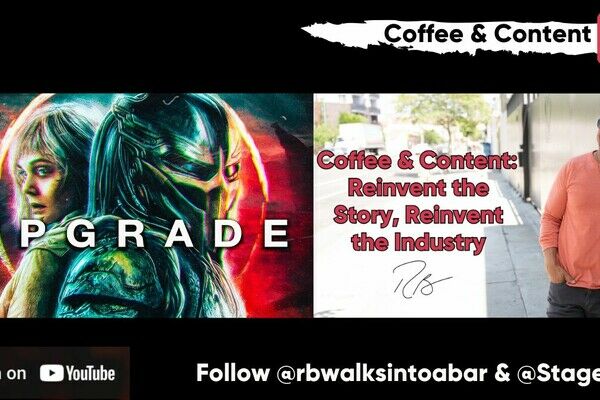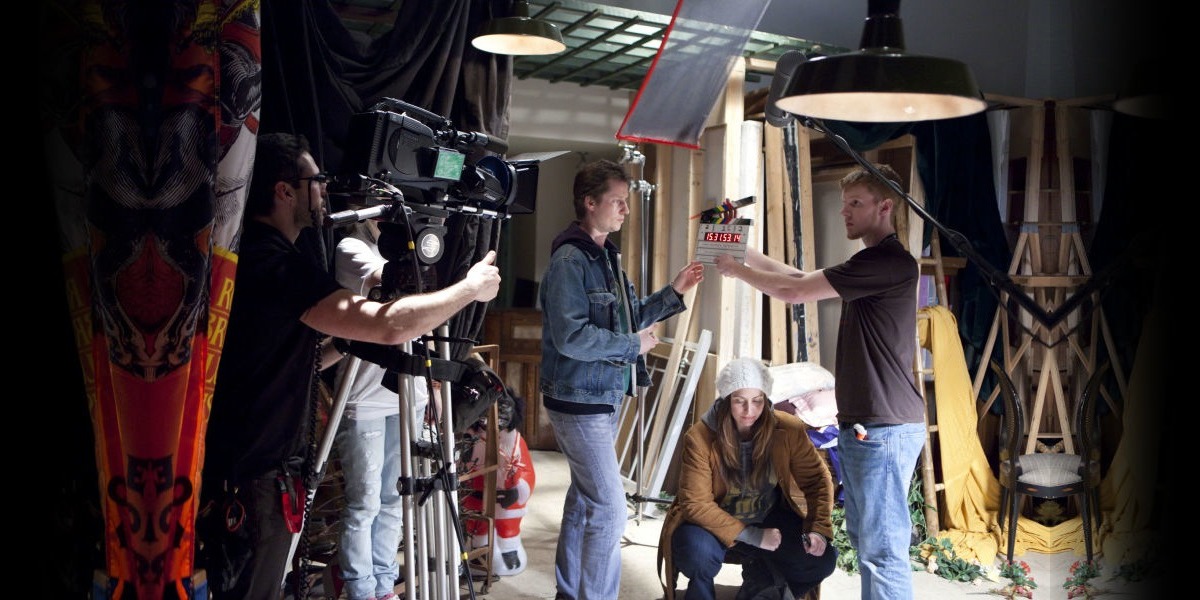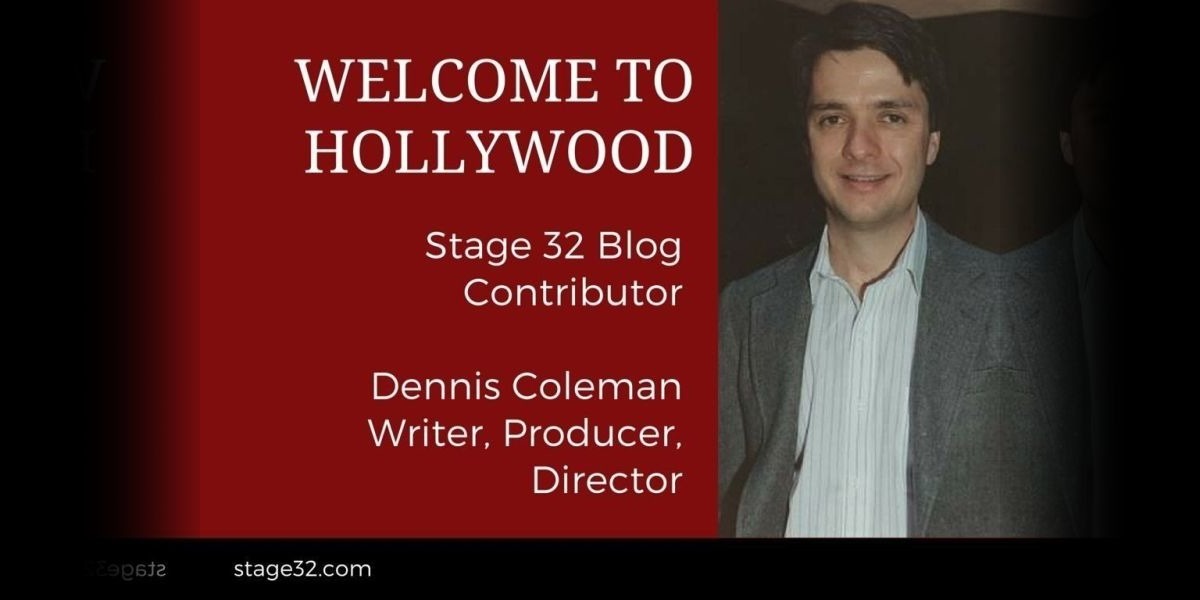Part I: Welcome To Hollywood: Talking the Talk - Tips On Celebrity Interviews,
 Richard "RB" Botto
Richard "RB" Botto Today I welcome back regular Stage 32 Blog contributor, Dennis Coleman. Dennis is a writer, producer and director with decades of experience in broadcast television and feature films. Having conducted over 10,000 celebrity interviews in his career, I think it's safe to say that Dennis knows a thing or two about the interview process. Whether you're conducting an interview for a documentary, research, a host or for other film related endeavors, you won't find better tips than those below.
If you missed Dennis's previous blogs you can read them here and here.
Enjoy!
RB
I’ve probably done around 10,000 interviews so far in my career. I was terrible when I started. My first interviews were almost unusable. I stammered, stared at my list of questions, froze, had no idea what to do.
But I got better. If you keep doing it, keep talking to people, you’ll figure out how to do it. Here’s what I’ve learned over the years that has helped me when I have to sit down and do interviews with stars, experts, persons-on-the-street and everyone in-between.
RESEARCH, RESEARCH AND MORE RESEARCH
Find out everything you can about the person you’re going to interview. Not just their IMDB bio or their Wikipedia entry: everything. Find print interviews with them, look at video interviews with them on Youtube. See what they respond to – and what questions they hate. What did they study in school? What kinds of jobs did they have early in their career? What do their brothers and sisters do? What do their mothers and fathers do? Any or all of this could come up in the interview and you have to be prepared to follow up.
Maybe the actor is playing a doctor – and their Mom was a nurse. What tips did they get from Mom? Or if they originally wanted to be a veterinarian – how does that factor into their role? Even more generally, did their parents think they were crazy when they told them what they wanted to do for a living? Have they convinced them it’s all turned out for the best?
Maybe they have a fear of heights – and in the movie or TV show they’re hanging off a building. Maybe they fell out of a tree as a kid and broke their collarbone. You have to know all this when you go into the interview.
It’s a lot of work and you may not have the time. I remember I was called to interview the surviving members of the band The Mamas and The Papas about their careers – back when there were three of them still alive. I had one evening to prepare. Well two of them had written autobiographies. So I had to get them and read them. Because then I knew what to ask – I didn’t ask generalities, I asked specifics. That’s important.
KNOW THE NEWS
I work primarily in entertainment news. So I read all the sites: deadline.com, thehollywoodreporter.com, variety.com. I also keep up on the gossip sites: tmz.com and perezhilton.com. You have to know what’s going on at all times. Because you may suddenly be in a situation where you need to know the latest breaking news.
A few weeks ago I was sent at the last minute to follow Donald Trump around Iowa. No time to read anything. But since I watch the news and I’m a political junkie, I knew all the latest information, all the latest speeches, all the latest trivia. So I could ask intelligent questions when I had to yell them out at a press conference with Mr. Trump.
On the flip side of that, I was covering a premiere years ago with a reporter (maybe one-fourth of the time I work with an on-camera reporter; the rest of the time, it’s me asking questions off-camera), when suddenly Matthew Perry showed up. And I knew – since I read all the sites – that he’d recently been in a car accident. But my reporter didn’t know it. And the interview began before I could tell him. Fortunately, Matthew Perry is a great guy and he could see that I was about to explode because the reporter was not asking about the car accident. So Matthew brought it up himself. But that’s the only time that’s ever happened. Normally, I’d just jump in and interrupt the interview; maybe I’d try whispering the information in the reporter’s ear, but that’s hard to do at a noisy premiere. In any case, you’ve got to know the latest news if you want to work as any kind of a reporter. Don’t rely on the home office to know everything. That’s up to you.
MEMORIZE YOUR QUESTIONS
You don’t want to be reading from a list of questions – ever. That’s unprofessional. Memorize your questions as best you can. There’s no problem in glancing at your notes towards the end of the interview to see if you’ve forgotten anything, but you can’t be staring at them throughout the interview. Try to figure out an order for the questions that would work best in drawing out your subject – and then be prepared when it doesn’t work out that way. If you’ve memorized your questions, then that’s no problem.
IT SHOULD BE A CONVERSATION
You should be talking to your interview subject as you talk to your best friend. Keep eye contact, make it a conversation, not an interrogation. That’s another reason to memorize your questions. You need to get your subject at ease, make them feel comfortable – and the best way to do that is to look at them and talk with them, not at them.
GET THE ANSWERS YOU NEED
That means don’t ever ask “yes” or “no” questions. Never “Were you scared when you did that stunt?” or “Was it awkward doing that sex scene?” Because they then say yes or no and you’re done. So it’s “What went through your mind when you were doing that stunt?” or “How did you feel when you were flying off that bridge?” or “Talk us through how you shoot a love scene?” You need them to tell you the story; don’t tell them.
“How did that make you feel?” is sort of a cliché, but it works. You could make a statement, like “you’ve been attacked in social media because of that comment you made; how did that make you feel? Tell us what you really meant to say.” Always get to their feelings, their personal story.
SKIP THE BORING QUESTIONS
Most interviews on a press junket or on a set are about ten to twelve minutes. Fifteen if you’re very lucky. Twenty minutes is luxurious. So you have to skip the boring stuff. If you’re shooting an EPK (electronic press kit) or doing interviews for a studio or network, then you will have to do character and plot questions. Otherwise, forget them.
Never ask “Tell me about your character” or “Tell me about the story of the film or TV show” unless you’re forced to. Because any news show is going to have set that information up already either in a lead or in a voice-over. Get to the good stuff: the stunts they did, the amazing scenes they shot, how they accidentally belted their co-star in the fight scene, how they had to keep diving into freezing cold water all night. There are great stories to be told and you don’t have much time. That includes the incredibly dull “What attracted you to this project?” It could be they needed the money or they like the director or they’ve never played a cop. But that question just wasted two minutes of your precious interview. Skip it.
DON’T CONFUSE THEM
Keep the questions as simple as you can. They should never be longer than the answer you get. Write down all your questions in advance and see how long they are – then cut ‘em down.
Also one sign (for me) of a novice is the request “I’m not on camera so please incorporate my question in your answer.” If you need to say that, then you don’t know how to ask questions properly. And you’ve just confused the poor interview subject, who is going to be nervously trying to remember your question and somehow make it sound natural. Don’t do it.
First of all, any actor is going to know that – they’ll know how to give you a good answer. If you’re interviewing a non-star, someone who’s not used to doing interviews, then you have to phrase the question to draw out the information you need. But if they are verbally impaired, meaning they really can’t speak too well on camera, then you will have to tell them to speak in complete sentences. And you may have to give them examples of what you mean.
DON’T ASK THE TOUGH STUFF FIRST
Frequently you’re going to have to ask some tough questions, usually something that doesn’t relate to the project you’re discussing. Maybe the star is going through a divorce; or they’re involved in a lawsuit; or they’ve gotten in some social media war with someone else. (Sometimes your bosses will only want you to ask that stuff – I can’t tell you how many times I’ve been told “we don’t care about the movie” – which is very sad to me because I do very much care about the movie or the TV show and I’d much rather talk about that than any personal problems the star is having.) But you’ve got to start off talking about the project at hand or you won’t get any interview at all. Save the difficult stuff for the end, so at least you’ve got something if they shut you down on the personal issues.
BUT YOU WILL HAVE TO ASK THE TOUGH STUFF
If a star is going through some personal drama, you’re going to have to ask about it. Even when their publicist says you can’t. (My feeling has always been that a publicist’s job is to prepare the celebrity for those questions, not tell the press we can’t ask – because we’re going to ask.) But there are ways to handle it.
Years ago, I was doing a press junket with my friend Jann Carl, a great reporter – and we were going to interview Halle Berry. She was going through a divorce at the time. And her manager said we couldn’t ask about it. Now instead of just ignoring him and shocking her by asking anyway, we said: we have to ask, it’s our job. So if Halle could prepare an answer, maybe something along the lines of “I’m going through a tough time right now but I’m really appreciative of all the support my fans have given me” then we will have asked, she will have answered and we don’t have to explore it any further than that. And that’s what happened. She prepped an answer like that in advance, had it ready when we asked, then we moved on and everyone was happy.
I remember covering a premiere when Bruce Willis showed up – and it was the day that his ex, Demi Moore, got engaged to Ashton Kutcher. Now Bruce can be intimidating. So I had to defuse the situation. After we’d discussed the movie, I simply said: “Bruce, please don’t kill me, but I have to ask this because it just came out in the news today.” And I asked for his reaction. He smiled, patted me on the head and said “have a nice day”. So no, I didn’t get an answer. But I asked and I didn’t piss him off. He was fine with me the next few times I saw him.
And there will be times when you won’t get any answer on personal stuff. Nicolas Cage is the master of that. If you ask him something that he doesn’t wish to talk about, he simply smiles a big smile and says “thanks for asking, but I’m not talking about that today.” Very nicely. And there’s no way around that. You’re shut down. But at least he’s pleasant about it.
Another time I was covering a Clint Eastwood premiere – and after all the stars were already in the theater, we got news about the verdict in the OJ Simpson civil trial. The office wanted stars to react to it. So I had to wait for them to come out of the movie, realizing that none of them knew this news. My crew and I ran along with Clint Eastwood as he went to his car, informing him of the verdict and getting a sound-bite from him. He didn’t have much to say, but he said something – which was all we needed.
That’s the other thing to remember: you might want to ask stars about events happening in the news. But they’re so busy they might not have seen or heard the news that day. That would happen to me all the time. So you have to figure out a way to concisely tell them the news (a plane crash, a famous person’s death, election results, whatever) to get their reaction. Don’t expect them to know about it already.
HOW TO GET THERE
If you have additional questions not related to the project you’re discussing, you have to think of a way to get there. Sometimes it’s simply, “there’s big news today that I have to ask you about”. Other times you have to be craftier.
Once I was interviewing Michael Caine on the set of one of his movies. (A big thrill for me – he’s a true legend!) And the film publicist only wanted us to talk about the movie. But I had read in the news about a really surprising story in his life: he had a half-brother he hadn’t know about who was in a mental institution. His mother had him before she married Michael’s father. And she’d visit that half-brother every day, saying she was going to visit their Aunt Lil. Michael had just discovered this news and had just met his half-brother. So I had to ask about that. As luck would have it, in the course of our interview, Michael said he was writing his autobiography on the set when he wasn’t shooting. So I simply said “well you’re certainly going to have to write about this latest chapter of your life with your half-brother!” And his eyes lit up and he was very excited to talk about it. (The publicist wasn’t happy, but I had my story.)
EVERYONE HAS BAD DAYS
If you asked reporters in Hollywood who the nicest people are to interview, the top three mostly likely would be Tom Hanks, Tom Cruise and Will Smith. Always friendly, always professional. They get to premieres early and talk to everyone – giving the one-hundredth interview was much energy and warmth as the first. But even they have bad days.
When Tom Hanks was losing the weight for Castaway, I saw him be a bit short with people. But he was starving, so give him a break!
We had to interview Tom Cruise on the Eyes Wide Shut junket just as news had come out that Stanley Kubrick had died. So it was tough for him to talk.
And I was on the set of a music video for Will Smith’s son – and Will decided he didn’t want to talk that day, that it should be about his son. And he was probably right, but my office wanted him on camera. And I couldn’t get it.
So there might be a time or two when a star has a bad day and that might be the day you have to talk to them. But don’t judge them on that one time!
YOU WILL RUN OUT OF TIME
As I said before, you probably have ten minutes for your interview. So prioritize your questions and figure out what you can lose. Sometimes you have even less time. Once I was doing the TCA’s (the Television Critics Association Tour). On those days, you’d have to literally do 25-30 interviews in one day with TV stars about their upcoming shows – and you’d have five to seven minutes to do it. I was about to interview Garry Shandling about hosting the Emmys. As he walked in the door, the publicist said “you have three minutes.” I couldn’t help myself, I said: “THREE MINUTES!” And Garry heard me and said “but it’ll be a GREAT three minutes!” And it was. Because he knew I needed a great three minutes.
At premieres or red carpet events, you’ll probably have time for three questions, and the first two better be about the movie or event. So if you need to ask about something else, make sure you can get all you want in one question.
---------------
Next time, in the rest of my interview tips, I’ll give you advice on how to be ready for anything… and what to do when you have brain freeze and the questions disappear!
Like this blog post? Please share it on social media (Facebook, Twitter, LinkedIn, email etc) by using social media buttons at the top of the blog. Or post to your personal blog and anywhere else you feel appropriate. Thank you.
As always, we welcome thoughts and remarks on ANY of the content above in the Comments section below...
| 3 Reasons You’re Not Raising Money For Your Indie Film |
| Stage 32 November 30-Day Write Club: Forging Ahead - Week 2 |
Search Stage 32 Blog
There are now 4043 blog posts for you to enjoy. Search them all by tags below.
Acting, Advice, Cinematography, Coffee & Content, Composing, Contests, Distribution, Featured, Filmmaking, Financing, Inspirational, Networking, Producing, Screenwriting, Success Stories, Tips, Trending,Relevant Tags
Recommended Articles

Insider Intel: Packaging your Project- The Chicken or the Egg Dilemma

Happy Thanksgiving From Stage 32: We Are Thankful For YOU

What Stage 32's Community Is Really About (Beyond Scripts, Sets, and Showreels)
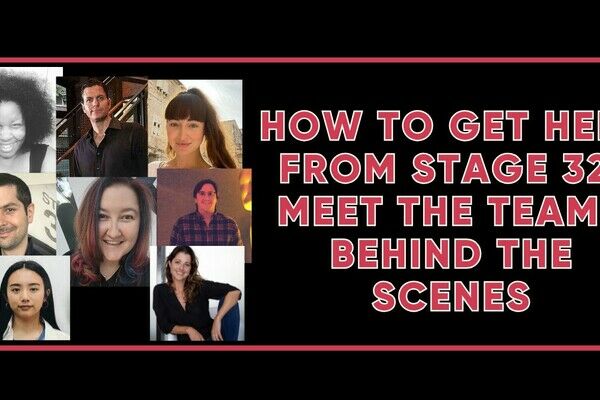
How to Get Help from Stage 32: Meet the Teams Behind the Scenes

Stage 32 Is My Magic Key To International Networking And Education

A Practical Guide for Actors: Tips & Advice Every Performer Should Know

State of the Industry 2026 Now On-Demand: RB & Geoff Break Down What’s Next for Writers!

Insider Intel: 2025- Your Year of Breakthroughs (+ What's Coming in 2026)
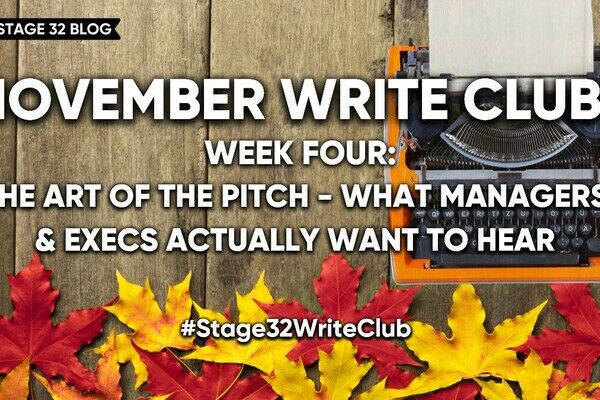
November Write Club Week 4: The Art of the Pitch- What Managers & Execs Actually Want to Hear
